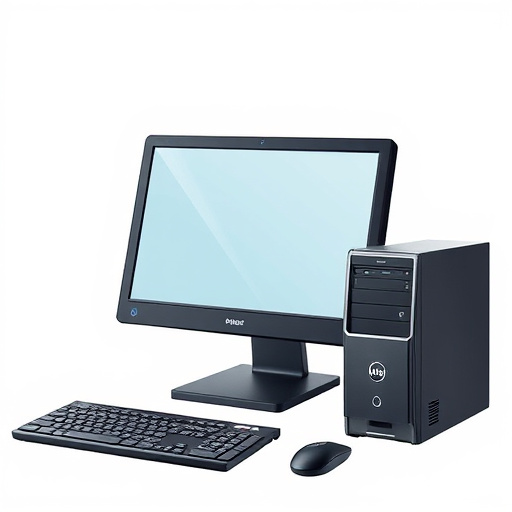
Choosing refurbished computers offers multiple benefits for both consumers and the environment, addressing e-waste concerns prevalent in the tech industry. By extending device lifespans, refurbishing reduces demand for new raw materials, minimizes energy consumption, and lowers greenhouse gas emissions. This eco-friendly approach not only conserves natural resources but also prevents harmful substances from leaching into soil and water from electronic waste in landfills. The benefits of refurbished computers include cost savings, environmental protection, and contributing to a more sustainable future.
Choosing refurbished technology offers significant environmental benefits, especially in reducing e-waste. As we navigate a digital landscape with ever-evolving tech, opting for pre-owned devices is a game-changer. This article explores how refurbished computers contribute to conservation efforts by lowering energy consumption and minimizing the demand for new raw materials. By embracing these second-life gadgets, we can collectively promote sustainable practices in the tech industry and reduce our environmental impact. Discover the profound advantages of giving refurbished technology a chance.
- Reducing E-Waste: A Key Advantage of Refurbished Computers
- Conserving Natural Resources and Energy
- Lowering Carbon Footprint: The Environmental Savings
- Promoting Sustainable Practice in the Tech Industry
Reducing E-Waste: A Key Advantage of Refurbished Computers

Choosing refurbished computers offers a significant advantage in reducing e-waste, one of the key benefits of refurbished technology. With an ever-evolving tech landscape, devices become outdated rapidly, leading to a growing mountain of electronic waste. E-waste contains harmful substances like lead, mercury, and cadmium, which can contaminate soil and water if not disposed of properly. By opting for refurbished computers, individuals and businesses play a crucial role in mitigating this environmental concern.
Refurbished electronics are restored to good working condition using genuine parts, ensuring they meet quality standards. This process extends the lifespan of these devices, keeping them out of landfills. It also conserves resources required to manufacture new hardware. The benefits of refurbished computers extend beyond cost savings; they contribute to a more sustainable future by reducing the environmental footprint associated with technology disposal and production.
Conserving Natural Resources and Energy

Choosing refurbished technology offers significant environmental benefits, especially in terms of conserving natural resources and energy. When we opt for pre-owned computers and electronics, we’re reducing the demand for new raw materials that often require extensive mining and extraction. The manufacturing process of new devices is known to consume vast amounts of energy and emit high levels of greenhouse gases, contributing to climate change. By giving refurbished products a second life, we cut down on these environmental impacts.
Additionally, refurbished computers have already incurred the majority of their energy costs during their initial production and use. Reselling them means extending their lifespan, further minimizing energy wastage. This practice helps decrease electronic waste, as many old devices end up in landfills, leaching harmful substances into the soil and water tables. The benefits of refurbished computers extend beyond cost savings; they are an eco-friendly choice that contributes to a greener future.
Lowering Carbon Footprint: The Environmental Savings

Choosing refurbished technology offers significant environmental benefits, particularly in terms of lowering carbon footprints. The process of refurbishing involves repairing and repurposing existing devices, which reduces the demand for new manufacturing. This, in turn, cuts down on energy consumption, as producing new electronics requires substantial power. By extending the lifespan of computers and other tech items, refurbished options contribute to a more sustainable cycle, diverting valuable resources from landfills and reducing the need for virgin materials.
Additionally, the benefits extend to the overall environmental savings. Manufacturing new devices often releases harmful chemicals and contributes to e-waste, both of which have detrimental effects on ecosystems. Refurbished computers and technology equipment, however, minimize these impacts. This eco-friendly approach not only conserves natural resources but also helps in mitigating climate change by reducing greenhouse gas emissions associated with the tech industry’s production processes.
Promoting Sustainable Practice in the Tech Industry

The tech industry is one of the world’s largest and fastest-growing sectors, but its environmental impact is a growing concern. Traditional practices involve manufacturing new devices, which require significant resources and contribute to electronic waste (e-waste) – a global issue with severe ecological consequences. However, choosing refurbished technology offers a compelling solution to promote sustainable practices in this industry. By opting for refurbished computers, individuals and businesses can significantly reduce e-waste generation and its associated environmental harm.
Refurbished computers provide numerous benefits, including lowering the demand for new hardware, which diminishes the need for resource-intensive manufacturing processes. This approach not only conserves natural resources but also reduces greenhouse gas emissions, air pollution, and water consumption linked to traditional tech production. Moreover, it encourages a circular economy, where products are reused and recycled, fostering a more sustainable and responsible tech industry.
Choosing refurbished technology offers a multitude of environmental benefits, from reducing e-waste to lowering carbon footprints. By opting for pre-owned computers, we conserve precious natural resources and energy, promoting sustainable practices within the tech industry. The advantages are clear: refurbished computers provide an eco-friendly solution that not only minimizes harm but also contributes to a greener future.






